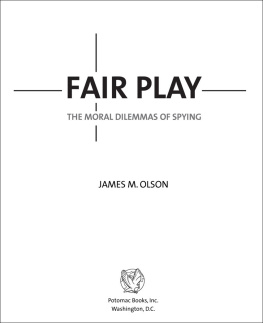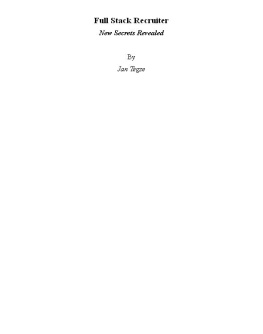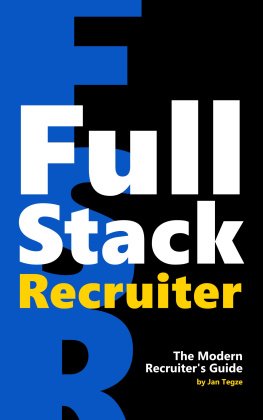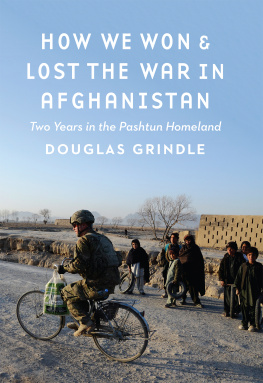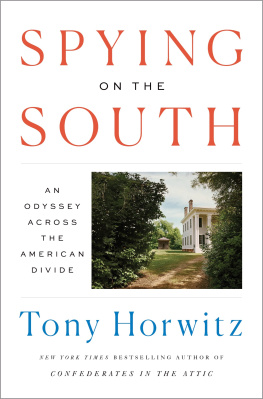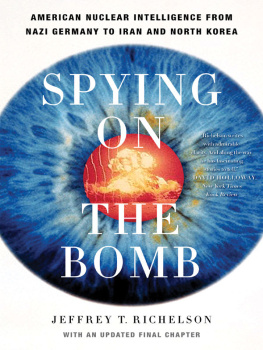Douglas London - The Recruiter: Spying and the Lost Art of American Intelligence
Here you can read online Douglas London - The Recruiter: Spying and the Lost Art of American Intelligence full text of the book (entire story) in english for free. Download pdf and epub, get meaning, cover and reviews about this ebook. year: 2021, publisher: Hachette Books, genre: Politics. Description of the work, (preface) as well as reviews are available. Best literature library LitArk.com created for fans of good reading and offers a wide selection of genres:
Romance novel
Science fiction
Adventure
Detective
Science
History
Home and family
Prose
Art
Politics
Computer
Non-fiction
Religion
Business
Children
Humor
Choose a favorite category and find really read worthwhile books. Enjoy immersion in the world of imagination, feel the emotions of the characters or learn something new for yourself, make an fascinating discovery.
- Book:The Recruiter: Spying and the Lost Art of American Intelligence
- Author:
- Publisher:Hachette Books
- Genre:
- Year:2021
- Rating:3 / 5
- Favourites:Add to favourites
- Your mark:
- 60
- 1
- 2
- 3
- 4
- 5
The Recruiter: Spying and the Lost Art of American Intelligence: summary, description and annotation
We offer to read an annotation, description, summary or preface (depends on what the author of the book "The Recruiter: Spying and the Lost Art of American Intelligence" wrote himself). If you haven't found the necessary information about the book — write in the comments, we will try to find it.
Douglas London: author's other books
Who wrote The Recruiter: Spying and the Lost Art of American Intelligence? Find out the surname, the name of the author of the book and a list of all author's works by series.
The Recruiter: Spying and the Lost Art of American Intelligence — read online for free the complete book (whole text) full work
Below is the text of the book, divided by pages. System saving the place of the last page read, allows you to conveniently read the book "The Recruiter: Spying and the Lost Art of American Intelligence" online for free, without having to search again every time where you left off. Put a bookmark, and you can go to the page where you finished reading at any time.
Font size:
Interval:
Bookmark:
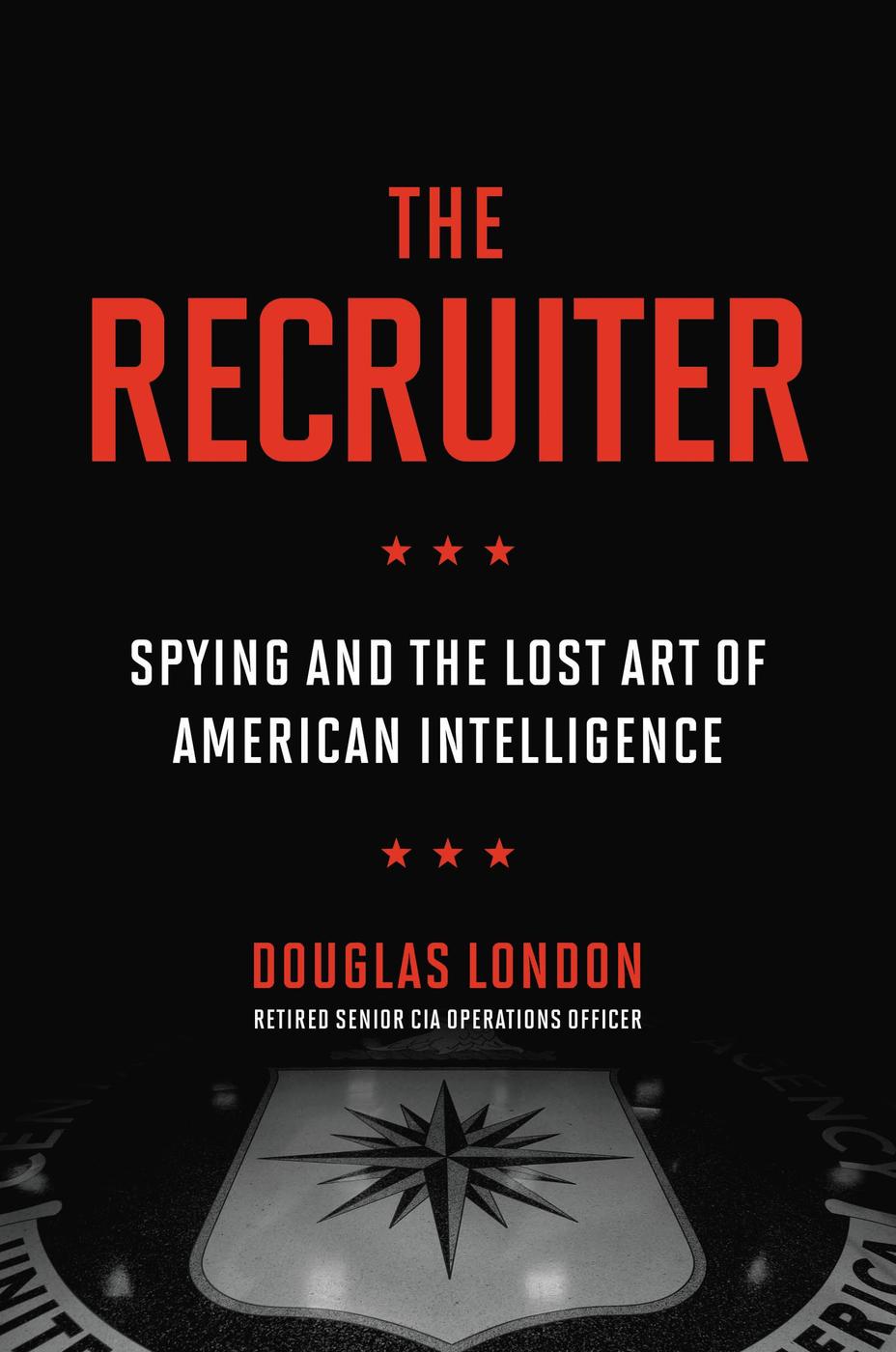
Copyright 2021 by Douglas London
Cover design by Terri Sirma
Cover photograph Brooks Kraft/Getty Images
Cover copyright 2021 by Hachette Book Group, Inc.
Hachette Book Group supports the right to free expression and the value of copyright. The purpose of copyright is to encourage writers and artists to produce the creative works that enrich our culture.
The scanning, uploading, and distribution of this book without permission is a theft of the authors intellectual property. If you would like permission to use material from the book (other than for review purposes), please contact permissions@hbgusa.com. Thank you for your support of the authors rights.
Hachette Books
Hachette Book Group
1290 Avenue of the Americas
New York, NY 10104
HachetteBooks.com
Twitter.com/HachetteBooks
Instagram.com/HachetteBooks
First Edition: September 2021
Published by Hachette Books, an imprint of Perseus Books, LLC, a subsidiary of Hachette Book Group, Inc. The Hachette Books name and logo is a trademark of the Hachette Book Group.
The Hachette Speakers Bureau provides a wide range of authors for speaking events.
To find out more, go to www.hachettespeakersbureau.com or call (866) 376-6591.
The publisher is not responsible for websites (or their content) that are not owned by the publisher.
Print book interior design by Sean Ford.
Library of Congress Cataloging-in-Publication Data
Names: London, Douglas (Operations officer) author.
Title: The recruiter : spying and the lost art of American intelligence /
Douglas London.
Description: First edition. | New York : Hachette Books, [2021] | Includes index.
Identifiers: LCCN 2021008054 | ISBN 9780306847301 (hardcover) | ISBN 9780306847325 (ebook)
Subjects: LCSH: United States. Central Intelligence AgencyHistory. |
London, Douglas (Operations officer) | Intelligence officersUnited
StatesBiography. | Intelligence serviceUnited States. | Secret
serviceUnited States. | National securityUnited States.
Classification: LCC JK468.I6 L66 2021 | DDC 327.1273dc23
LC record available at https://lccn.loc.gov/2021008054
ISBNs: 9780306847301 (hardcover), 9780306847325 (ebook)
E3-20210810-DA-NF-ORI
Para mi Alma viva, and my five amazing children, Steve, Mike, Melissa, Jenny, and Emily, my true and proudest legacy. And to the foreign agents who risked all to protect a country most would never see, and a people who would not know of their sacrifices for our freedoms.
Explore book giveaways, sneak peeks, deals, and more.
Tap here to learn more.

All statements of fact, opinion, or analysis expressed are those of the author and do not reflect the official positions or views of the Central Intelligence Agency (CIA) or any other US government agency. Nothing in the contents should be construed as asserting or implying US government authentication of information or CIA endorsement of the authors views.
This nonfiction account of the changes the CIA underwent over the course of my thirty-four-plus years of service is based on actual experiences. The CIA required four months to review this manuscript during the spring and summer of 2020, over the course of which I was pressured against its publication in ways both subtle and not. In ultimately yielding, the CIA redacted significant portions, primarily where the anecdotes cast senior officials in a bad light. In the Trump age, image was everything at the CIA, and the Agency was fearful of what might provoke the presidents next outburst. At its own peril, and that of the country it is charged to protect, under both Mike Pompeo and Gina Haspel, the CIAs leadership agonized over controlling and shaping that image.
In maintaining my oath to the Constitution, legal obligation to the Agency, and moral commitment to the agents I recruited, ran, and managed as a senior spymaster, I changed all the names, aliases included, and distorted descriptions and details that might facilitate their identification. I extended this same protection to colleagues, regardless of their role as forces of good, or bad, in the Agencys history. Its important from the outset to understand that the term agent refers to a recruited foreign spy operating on the CIAs behalf. The American CIA staff who recruit and clandestinely handle these agents are case officers, not agents.
I chose war stories about agents and operations that best reflect my experiences and express the themes on which I was writing. So as to avoid endangering agents or compromising classified information, I necessarily had to dance around revealing details such as locations, nationalities, physical appearance and attributes (including gender), and time. There were cases and operations too sensitive for me to discuss in any fashion, and others the Agency censored in their entirety or in bits and pieces, most often to protect its image rather than the operations. The final product sufficiently obscures while still illuminating the rather extraordinary life I and other CIA case officers had the privilege to lead.
CIA requirements did, however, detract somewhat from the narrative, regrettably creating vagaries and gaps I am not at liberty to explain. For example, because I am precluded from providing explicit references to living undercover or even the mention of specific US government facilities, or American officials residing abroad, the task of narrating a spys life was somewhat more complicated. It certainly frustrated my editors! In the end, these impediments, while challenging, do not detract from the storys fundamental message that the CIA is a critical institution to American national security, but one at a crossroads and in need of significant reform. Espionage is about people: their strengths, weaknesses, drives, eccentricities, and fears. More precisely, espionage is about the human soul, and the ability of those who can see therein. That goes for the agents we recruit to spy against their own, as well as the Agency officers who bear responsibility for discharging the mission.
While I apologize in advance for the occasional painfully vague and convoluted explanations that dance around the passages, and wording struck down by Agency censors, I ask the reader to focus on the people and their stories. See into the hearts and souls, as I did for almost four decades, of the spies, the agents, the bureaucrats, politicians, and intelligence careerists. Do that and you will find what it is that brings life to the worlds second oldest profession. Spycraft, a trade deemed by many as distasteful as the worlds second oldest profession, is charged with a noble mission and is guided by an ethical code; and it is practiced by an assortment of heroes and villains, flawed characters all, me included, on all sides.
T he first time anyone referred to me as a spy was 1986. I was living in the Middle East and meeting a host government official whom I had been cultivating for several months. Bilal had invited me to his house late in the evening, as he liked to do, when the streets were quiet, the household staff gone, and his family busied themselves in their part of the large house. As was our custom, we sat on his veranda, sipping the Johnnie Walker Black I regularly gifted him, eating nuts, and looking at the stars.
Bilal liked to talk. And the first thing you noticed was his ear to ear smile while relating stories, telling jokes, or simply cracking wise at your expense. Playful and impish, Bilal loved to tease. He provoked and relished arguments as a pastime, studying how best to get a rise from someone and hit a nerve. But Bilal was quick to retreat when sensing offense. He was, as are most of the Arabs I have known over the years, a caring and generous host.
Font size:
Interval:
Bookmark:
Similar books «The Recruiter: Spying and the Lost Art of American Intelligence»
Look at similar books to The Recruiter: Spying and the Lost Art of American Intelligence. We have selected literature similar in name and meaning in the hope of providing readers with more options to find new, interesting, not yet read works.
Discussion, reviews of the book The Recruiter: Spying and the Lost Art of American Intelligence and just readers' own opinions. Leave your comments, write what you think about the work, its meaning or the main characters. Specify what exactly you liked and what you didn't like, and why you think so.





